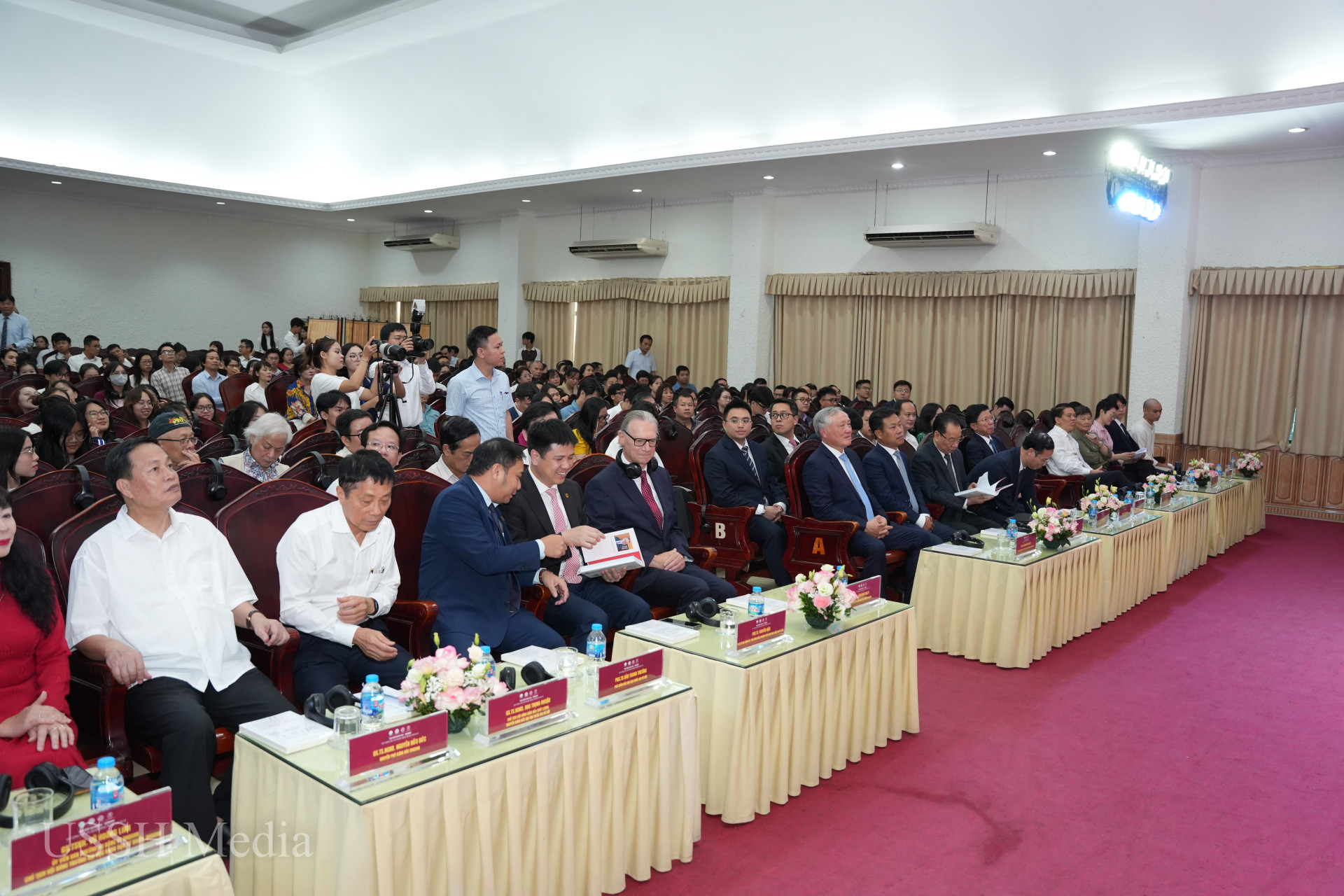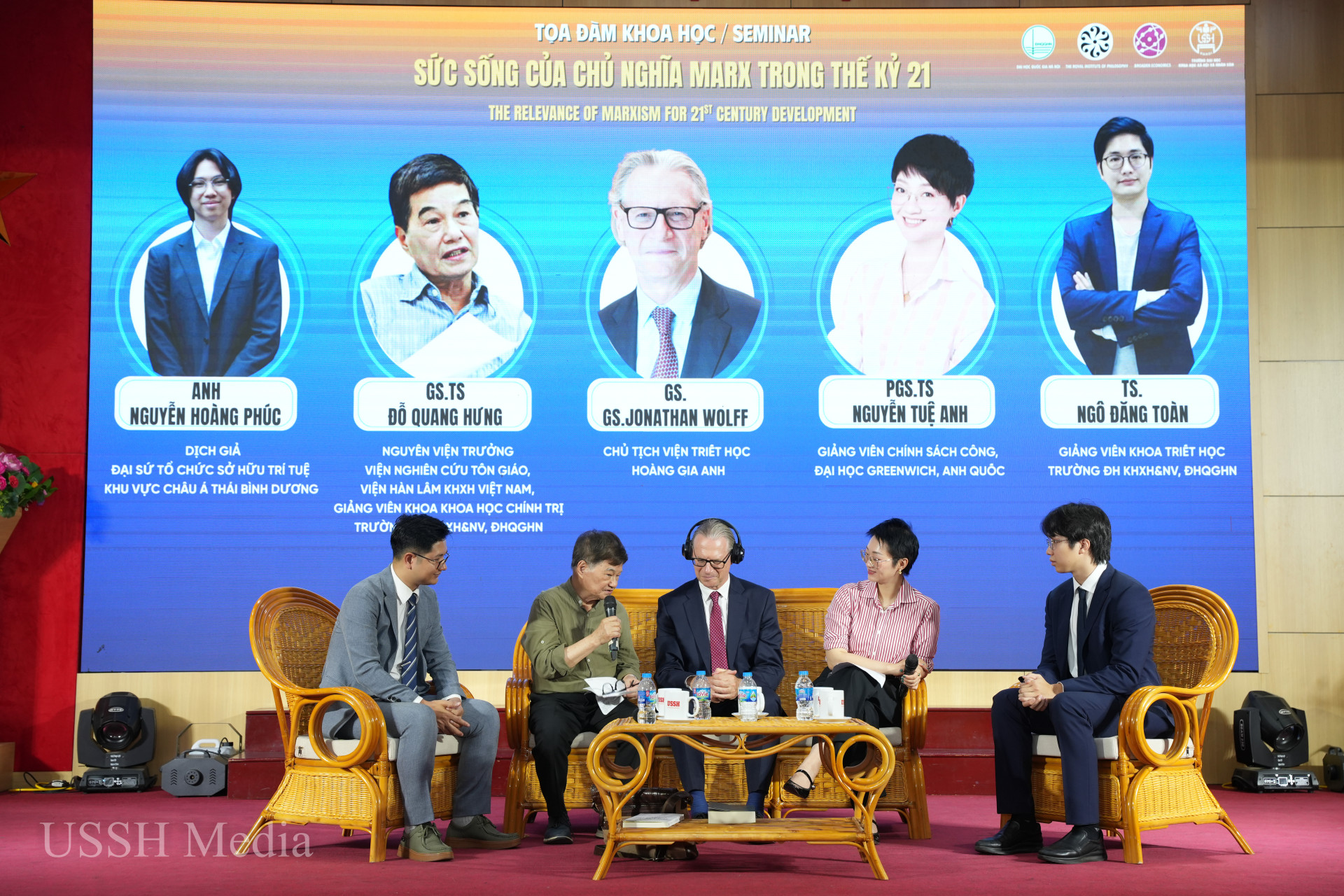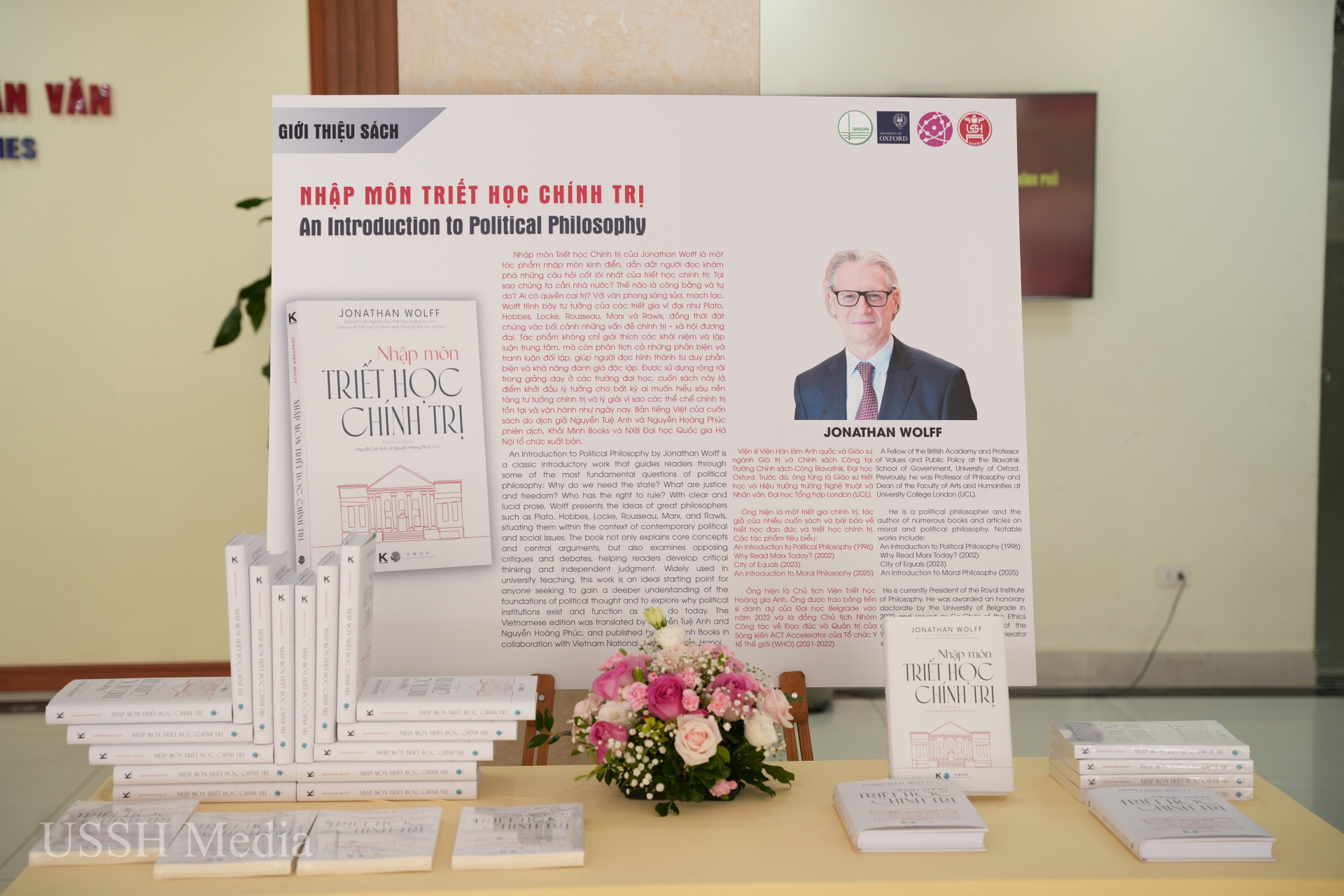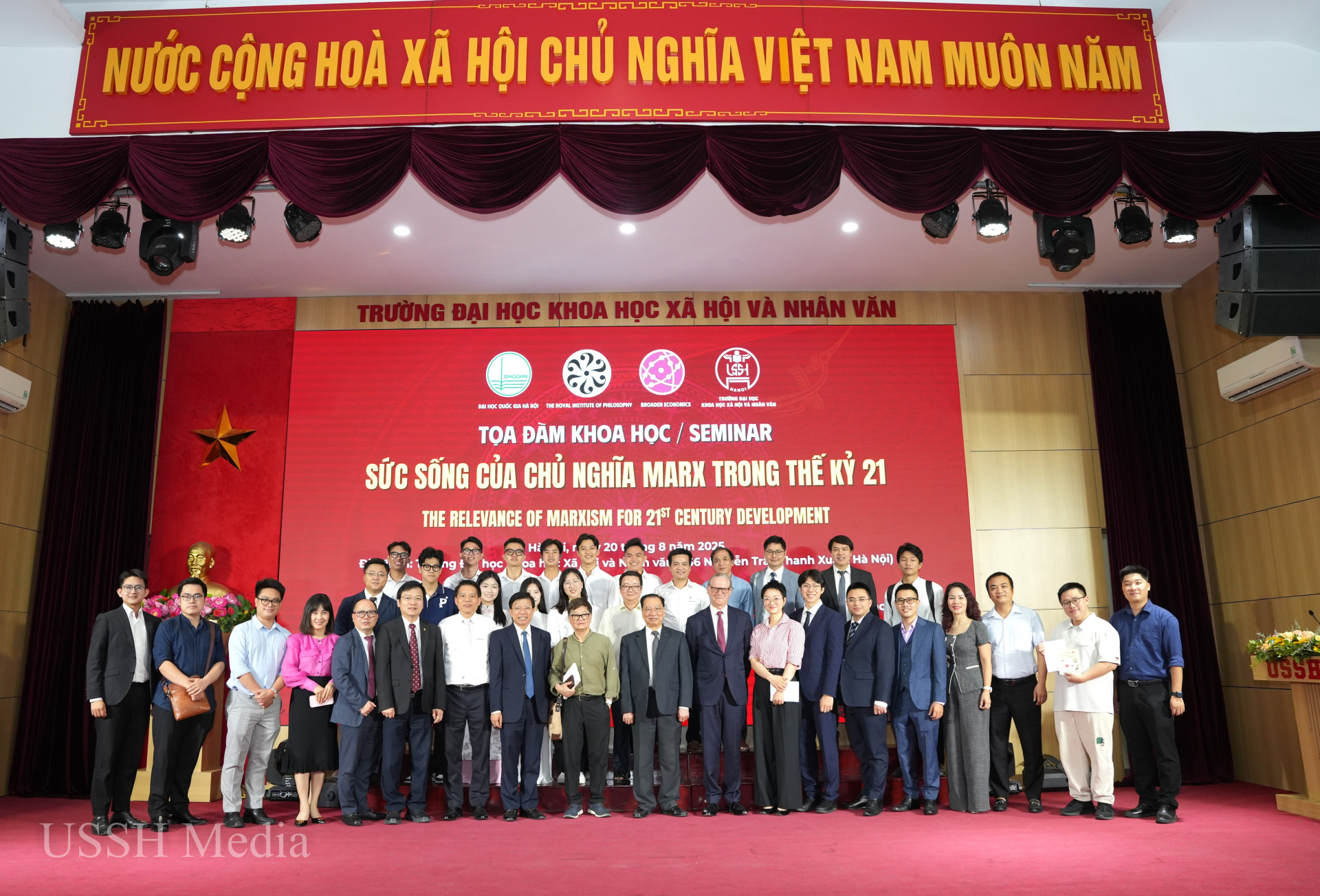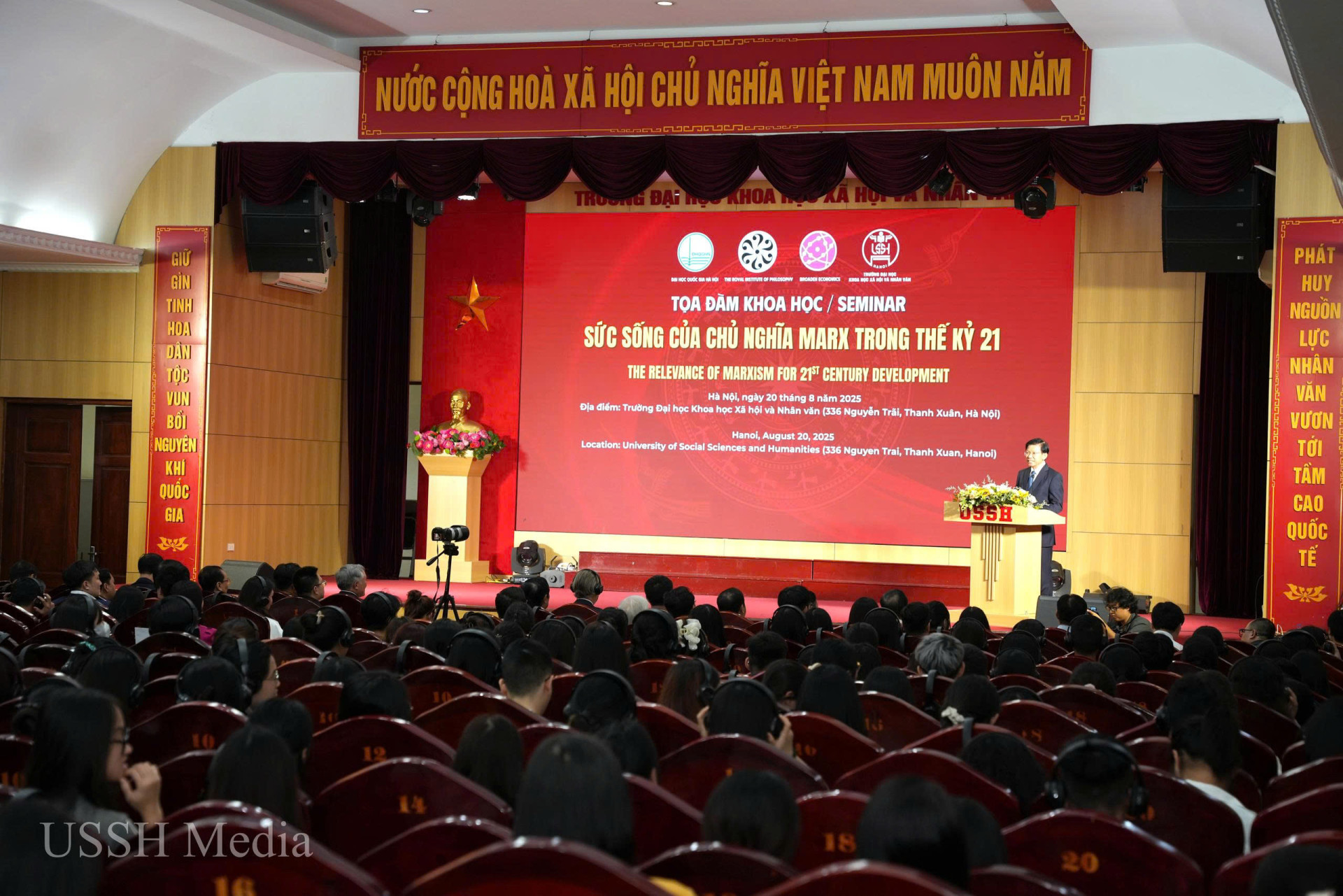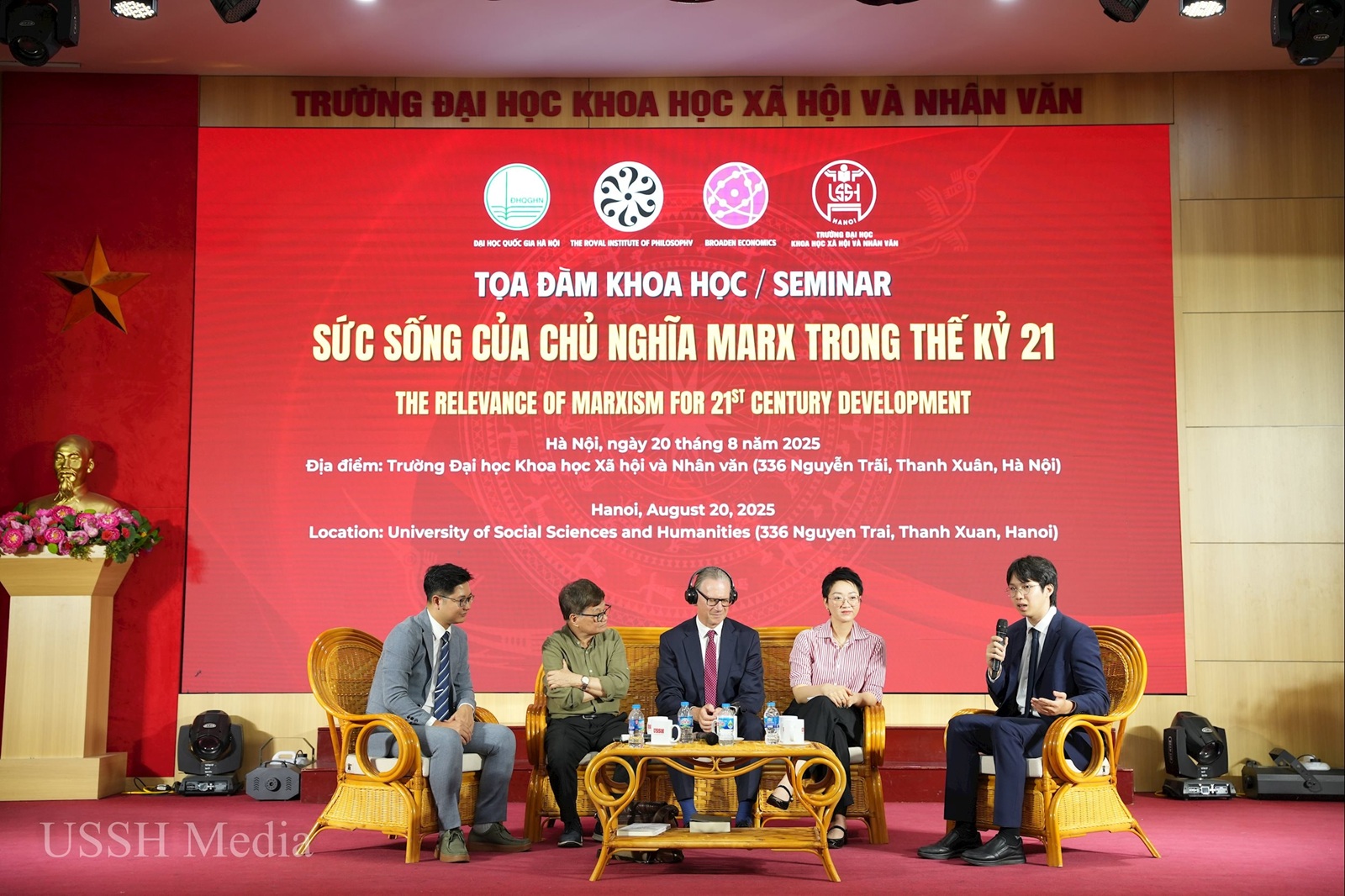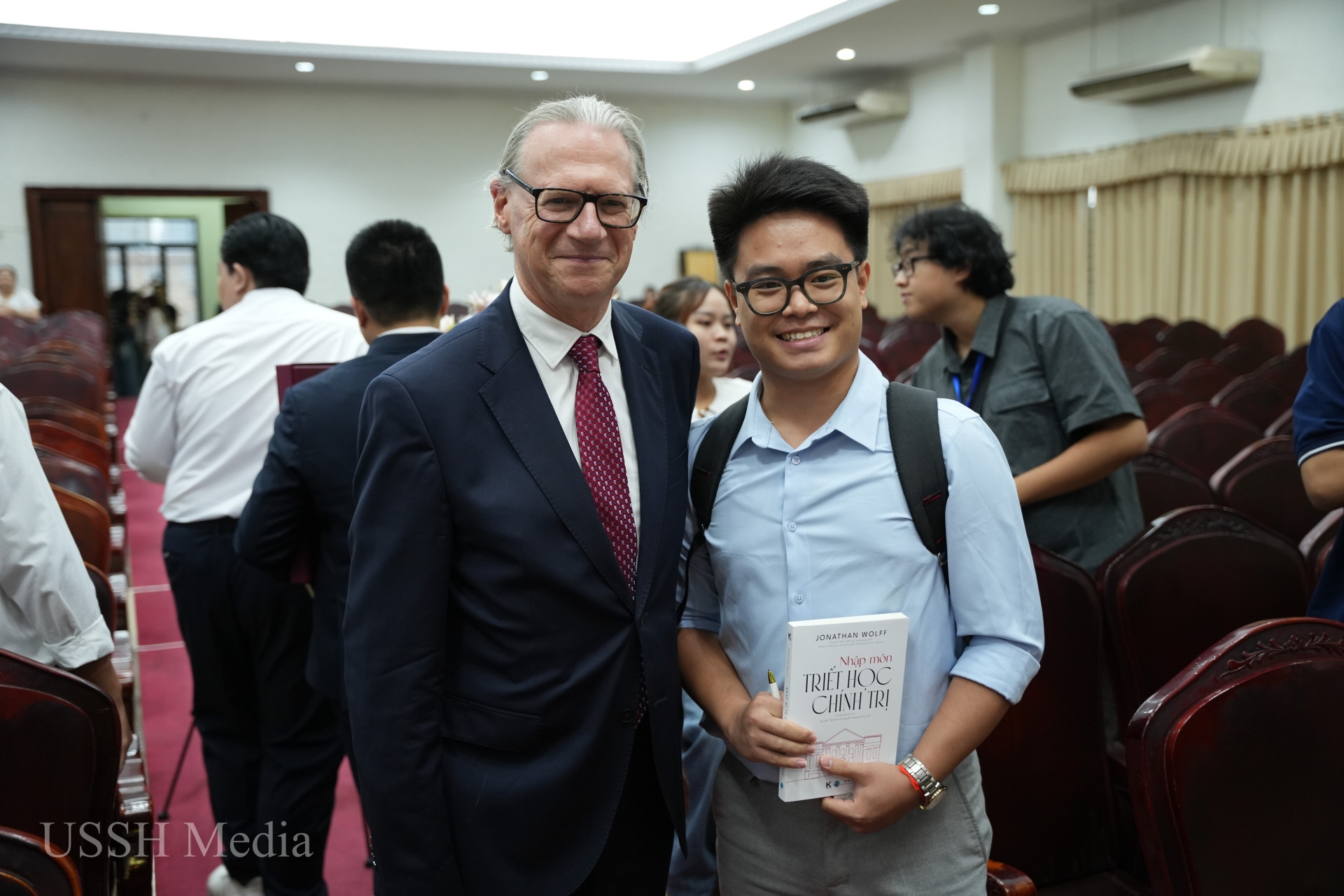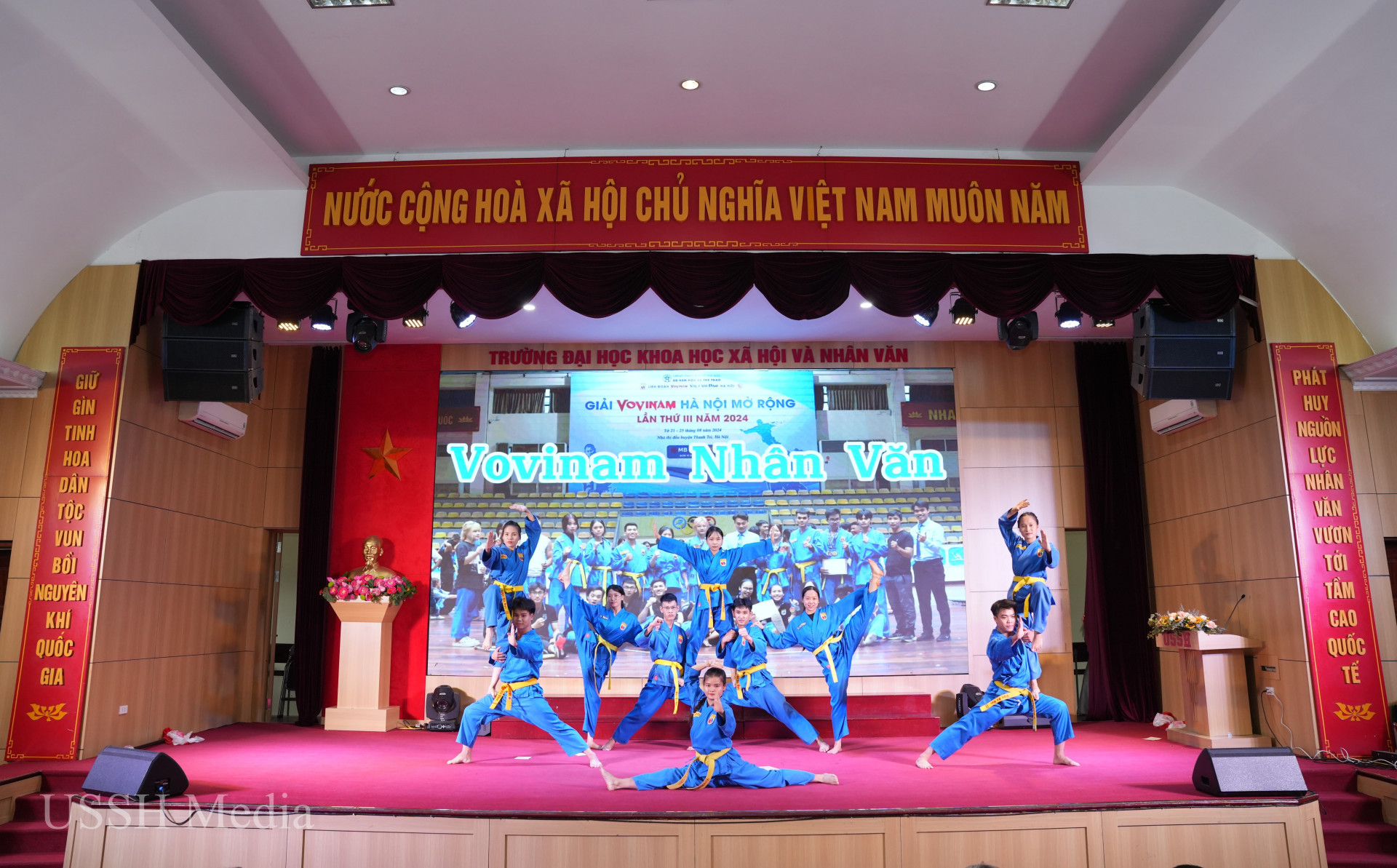Attending the discussion were Politburo member, Permanent Deputy Prime Minister Nguyen Hoa Binh; leaders of the Government Office, leaders of the Ministry of Education and Training, the Ministry of Home Affairs, the Ministry of Science and Technology, and leaders of the National University. The discussion welcomed the participation of Prof. Jonathan Wolff - Academician of the British Academy, Professor of Values and Public Policy at the Blavatnik School of Public Policy, Oxford University and currently President of the Royal Institute of Philosophy. He is also a political philosopher, author of many books and articles on moral philosophy and political philosophy.
In the context of the contemporary world with profound changes in economics, politics, technology and society, re-examining the value of classical theories is an urgent need. The seminar: “The Vitality of Marxism in the 21st Century”, introducing the book “Introduction to Political Philosophy” by Professor Jonathan Wolff is not only an academic event, but also a meaningful forum, affirming the enduring vitality of Marxist thought and opening up new perspectives on political philosophy for Vietnamese readers.
The seminar was attended by delegates from government agencies, central ministries and branches and prestigious scientists.
Affirming the enduring value of MarxismIn his opening speech, Prof. Dr. Hoang Anh Tuan, Rector of the University of Social Sciences and Humanities, Vietnam National University, Hanoi, emphasized: “How can Marxism dialogue and adapt to new opportunities and challenges, from globalization, the 4.0 industrial revolution to diverse democratic movements? I believe that, through today's exchanges, we will not only see the continuity of Marxist ideology, but also find practical suggestions for creative application in the reality of Vietnam - a country that is firmly on the path of socialism with its own identity."
Prof. Dr. Hoang Anh Tuan, Rector of the University of Social Sciences and Humanities, delivered the opening speech at the seminar.
In his presentation entitled “The Vitality of Marxism and Socialism in the 21st Century”, Professor Jonathan Wolff presented how to strengthen and build socialism in the face of the challenges of the 21st century, especially in developing countries. Based on his works such as “Why Marx is Necessary Today”, “Introduction to Political Philosophy”, “Equal Cities” and “The Human Right to Health Care and Protection”, Professor Wolff went into depth in analyzing the contradictions in the development process such as between high economic growth and ensuring social equity, between developing a market economy and ensuring the quality of public services and social security networks, and the role of the State in ensuring and implementing justice.
Regarding the question "Should the State provide free health care and education? Is equality achievable and should we aim for it?", Professor Wolff said that although absolute equality may not be realistic, addressing corrosive disadvantages and promoting human dignity is the primary goal. According to him: "True equality must go beyond economic or income indicators, and help shape how people live, interact and are valued in society." Mr. Wolff also emphasized that to develop the vision requires proactive public policies with a solid ethical foundation, to empower individuals and communities. Through today's lecture, he will contribute theory and practice in building socialism in Vietnam in the new era.
Prof. Jonathan Wolff presented a lecture on “The Vitality of Marxism and Socialism in the 21st Century”
It can be seen that, in the face of changes in science and technology, especially the 4.0 Industrial Revolution, Marx's theory on the mode of production, on the contradiction between productive forces and production relations, has increasingly demonstrated its predictive value. The development of artificial intelligence, platform economy and automation has raised issues of inequality, alienation of workers in a "virtual world" and the concentration of capital in the hands of a few giant technology corporations. Marxism provides a lens to analyze these phenomena fundamentally, not just on the surface. Moreover, global challenges such as climate change, migration crisis or pandemics clearly show the limitations of purely capitalist solutions, which put profit first. Marx's ideology of a sustainable developing society, for the common good of all humanity instead of the private interests of a particular class or nation, has become extremely relevant. It opens the way for humanity to move towards a more balanced, cooperative and humane development model.
Book introduction: "Introduction to Political Philosophy" - a bridge of knowledge to the publicDuring the seminar, the book “Introduction to Political Philosophy” by Professor Jonathan Wolff was introduced to readers in Vietnam for the first time. Professor Wolff deeply analyzed the contradictions in the development process such as between high economic growth and ensuring social equity, between developing a market economy and ensuring the quality of public services and social security networks, and the role of the State in ensuring and implementing justice.
Associate Professor Dr. Nguyen Tue Anh (University of Greenwich, UK) introduces the book "Introduction to Political Philosophy" which she co-translated.
Scientists from the University of Social Sciences and Humanities attended an open discussion with Professor Jonathan Wolff and scientists from the University of Greenwich and the Asia Pacific Intellectual Property Organization.
Exhibition space for the book "Introduction to Political Philosophy" by Professor Jonathan Wolff at the University of Social Sciences and Humanities, Vietnam National University, Hanoi The book’s special value lies in its important place in presenting and analyzing the great contributions of Marxism in the broad picture of political philosophy. Instead of being isolated, Marx’s thought is placed in dialogue with other philosophers such as John Rawls (with the theory of justice) or Robert Nozick (with libertarianism). This approach not only helps readers gain a deeper understanding of Marxism, but also shows its influence and debate on other schools of thought, thereby affirming Marx’s undeniable position in the flow of human thought.
For Vietnam, a country firmly following the path of socialism with its own identity, discussing the vitality of Marxism is of particular importance. The discussion and the book suggest valuable lessons on the creative application and development of Marxism in new conditions. It is not a mechanical application of rigid principles, but a mastery of methodology to solve practical problems of the country. Issues such as building a rule-of-law state, developing a socialist-oriented market economy, ensuring social justice, or protecting the environment can all find profound suggestions from studying both Marxist theory and contemporary political philosophical debates. Professor Wolff's book, therefore, is a valuable reference, contributing to "providing sharp lenses" for policy making and planning, towards the goal of building a "democratic, equitable, civilized society".
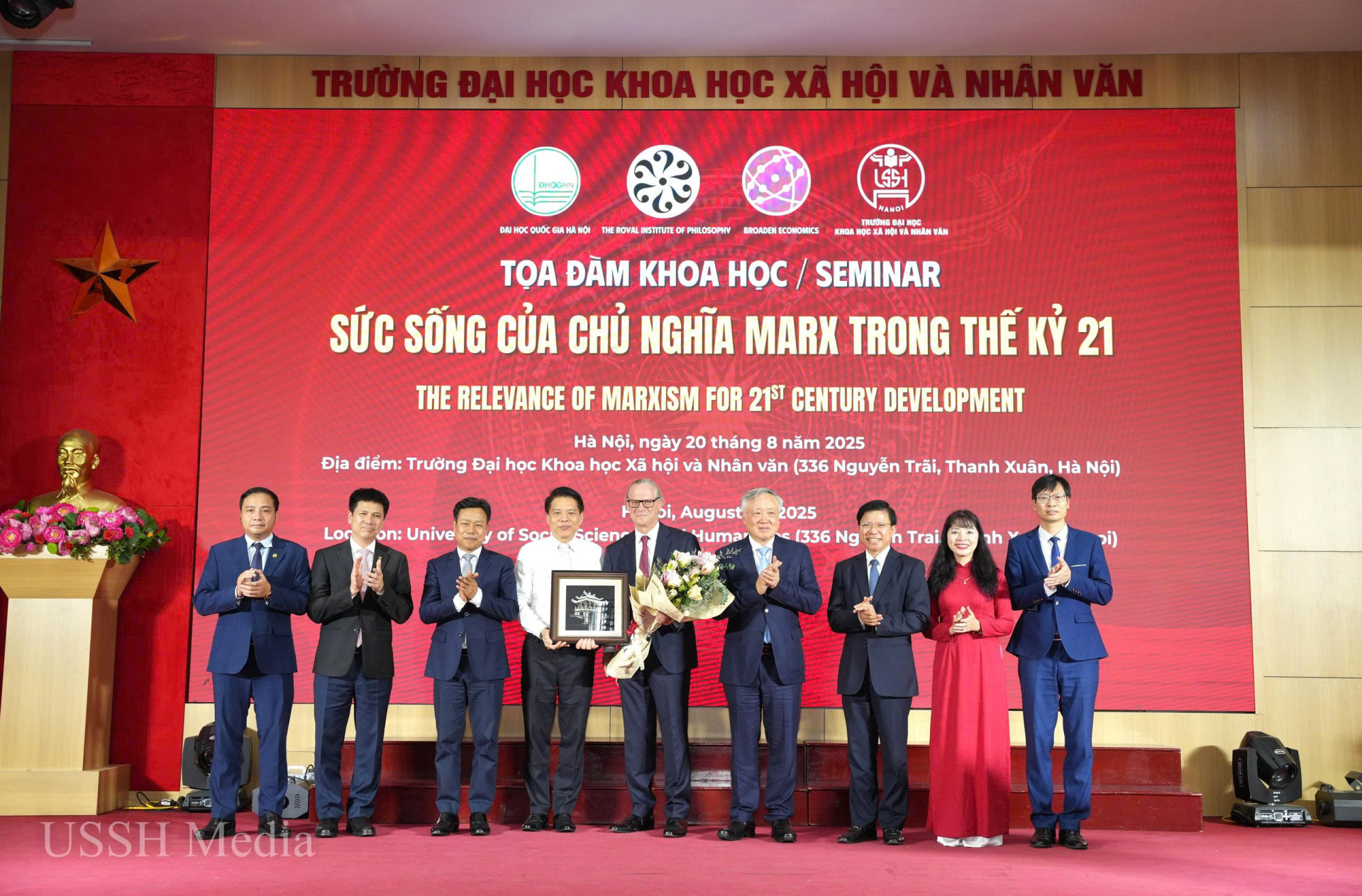
Deputy Prime Minister Nguyen Hoa Binh, leaders of Hanoi National University and University of Social Sciences and Humanities respectfully presented a souvenir to Professor Jonathan Wolff.
Professor Jonathan Wolff took a souvenir photo with the attending delegates. The seminar: “The Vitality of Marxism in the 21st Century”, introducing the book “Introduction to Political Philosophy”, has successfully sparked profound and practical academic discourses. The event not only affirmed that Marxism continues to be an important theoretical system, capable of explaining and transforming the world, but also brought political philosophy – which is often considered abstract – closer to the public. Through multi-dimensional dialogues, we see that the true vitality of a doctrine does not lie in its immutability, but in its ability to dialogue, adapt and continue to pose big questions to humanity. In the turbulent 21st century, continuing to research, apply and creatively develop Marxism, based on its scientific methodology, is the key to solving global challenges and creating a better future for everyone.
Some photos at the seminar held on August 20, 2025 at the University of Social Sciences and Humanities, Vietnam National University, Hanoi:
